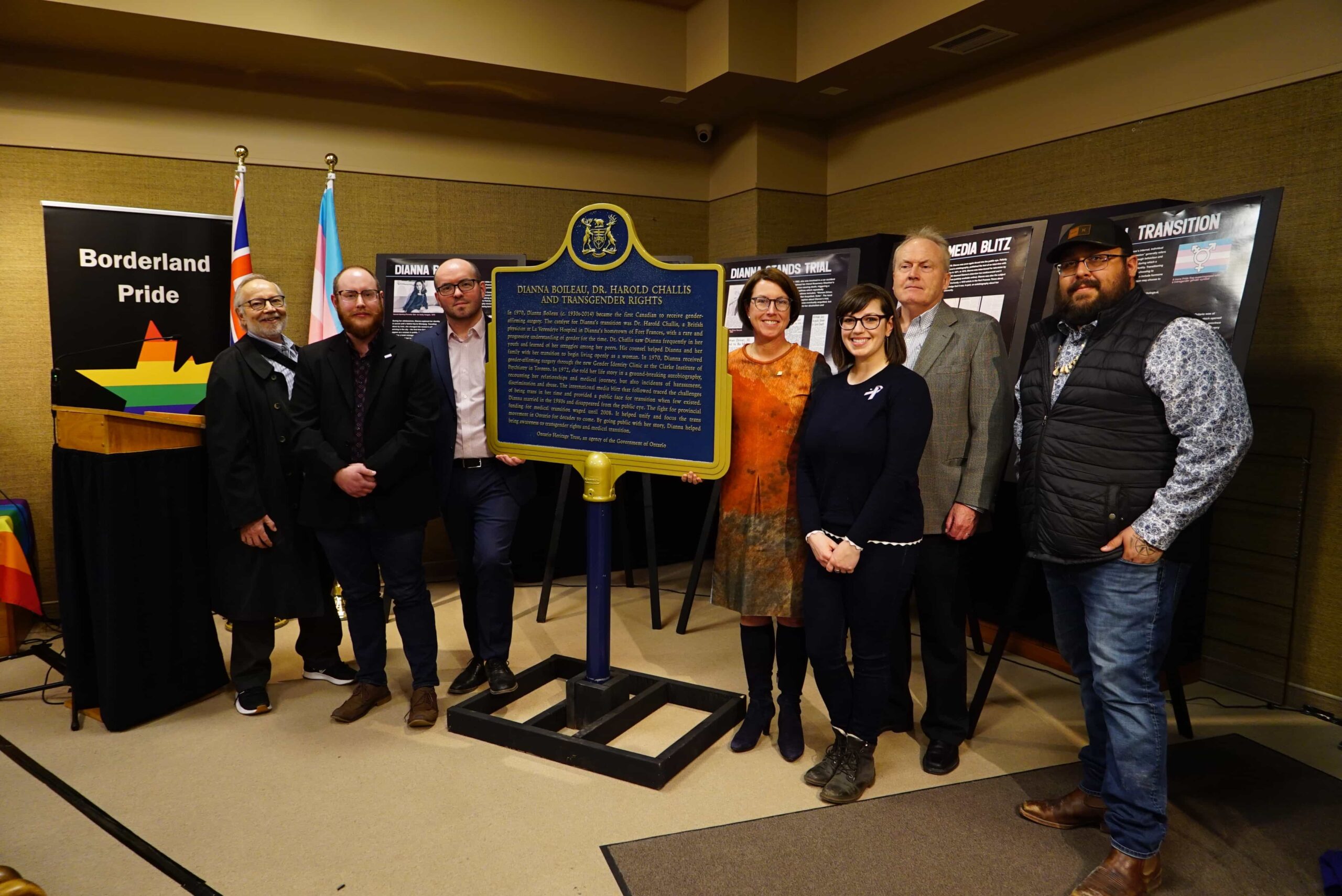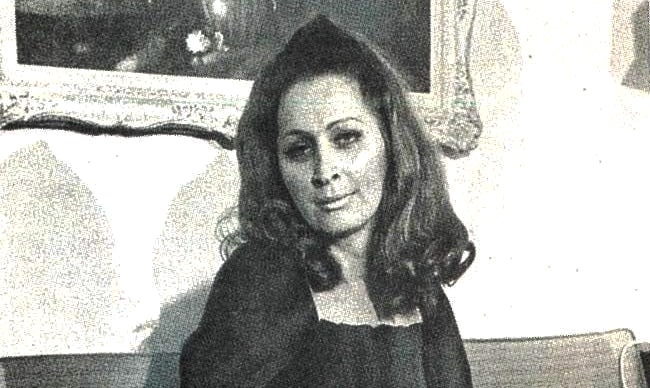On Friday, the Ontario Heritage Trust unveiled a plaque in Fort Frances commemorating Dianna Boileau, heralded as the first trans woman in Canada to receive gender-confirmation surgery. In partnership with Borderland Pride, and in celebration of International Trans Day of Visibility, the plaque celebrates Boileau and Dr. Harold Challis, the physician who assisted her with her social transition. The plaque reads, in part:
“In 1970, Dianna Boileau (c. 1930s–2014) became the first Canadian to receive gender-affirming surgery. The catalyst for Dianna’s transition was Dr. Harold Challis, a British physician at La Verendrye Hospital in Dianna’s hometown of Fort Frances, with a rare and progressive understanding of gender for the time.”
Borderland Pride is an LGBTQ2S+ organization in the Rainy River district in Ontario and Koochiching County in northern Minnesota. Douglas Judson, director of Borderland Pride, says that it is important to tell these kinds of stories in light of attacks on trans rights all over the world.
“I think on a global level, it’s meaningful to members in our community that we are not just telling a story about a historical figure,” he says. “What we are telling is a story that is relevant for the time we find ourselves in. Here we have someone who was able to have their identity normalized 70 years ago in Fort Frances, Ontario, of all places. We still have these battles today, where trans people are fighting for gender-affirming care, and repeated legislative attacks on the LGBT2S+ community, and in a growing number of U.S. states these issues are still alive today.”
Boileau’s transition in the 1950s to 1970s came at a time when there was little understanding and heavy stigmatization of trans people. Many of the protections that people in Ontario now have did not yet exist, as there was little funding and research into gender-confirmation surgery, and it was not yet covered under the Ontario Health Insurance Plan.
According to her biography, Boileau was born in Winnipeg, but grew up in the rural western Ontario town of Fort Frances, the site of the plaque unveiling. She began to see herself as a woman from a young age, and as she got further along her social transition, her family moved to Thunder Bay in order for her to be able to live her life as a woman.
In 1962, she was involved in a car accident that tragically claimed the life of a friend, and saw her charged with criminal negligence. While she was eventually acquitted, the public scrutiny, and being outed by the media and in court, led her to alcoholism, and an attempt to take her own life.
In the aftermath of her trial, she began to make connections with other trans people in Toronto, and started to look into gender-confirmation surgery. She received gender-confirmation surgery in 1970 in Toronto, purportedly becoming the first Canadian to receive this procedure.
In 1972, she released an autobiography titled Behold, I Am a Woman. A CBC interview she did was deemed too controversial to air, but is now publicly available through the broadcaster’s archives.

Credit: The Ontario Heritage Trust
After 1972, she made no more public appearances. Not much is known about her life after this, although she married sometime in the 1980s and, according to her biography’s co-writer, she died in 2014.
Judson spoke to Xtra about the importance that these kinds of stories, especially from rural communities, get highlighted. Along with helping create this plaque, Borderland Pride also created a podcast series called Behold Dianna. It contains dramatized readings of her biography, which is now out of print, and reflections from queer people in the Fort Frances community. As a director of a Pride organization representing northwestern Ontario, Judson sees the relative lack of resources offered to those in rural communities in contrast to those in large urban areas. “I think Dianna is a really important symbol for someone who is reaching out for support or looking for some signal that they are normal, and that they belong when everything else around them in their environment doesn’t look like it’s for them.
“I think that that’s really important. And I think that this is going to stand as something significant for the next individuals who are who are struggling with their sexual orientation or gender identity, or dealing with issues in their family and help them see that people like them have succeeded, and have been able to self-actualize their own identity from a place like this.”
Judson points out that all of the plaques installed previously around Fort Frances were linked to Canada’s history of colonization, such as fur traders and those associated with the Hudson’s Bay Company. “I think it’s interesting to have this plaque installed here, because it’s really going to challenge notions of what type of community we are and what types of people come from this community or are attached to this community.”


 Why you can trust Xtra
Why you can trust Xtra


